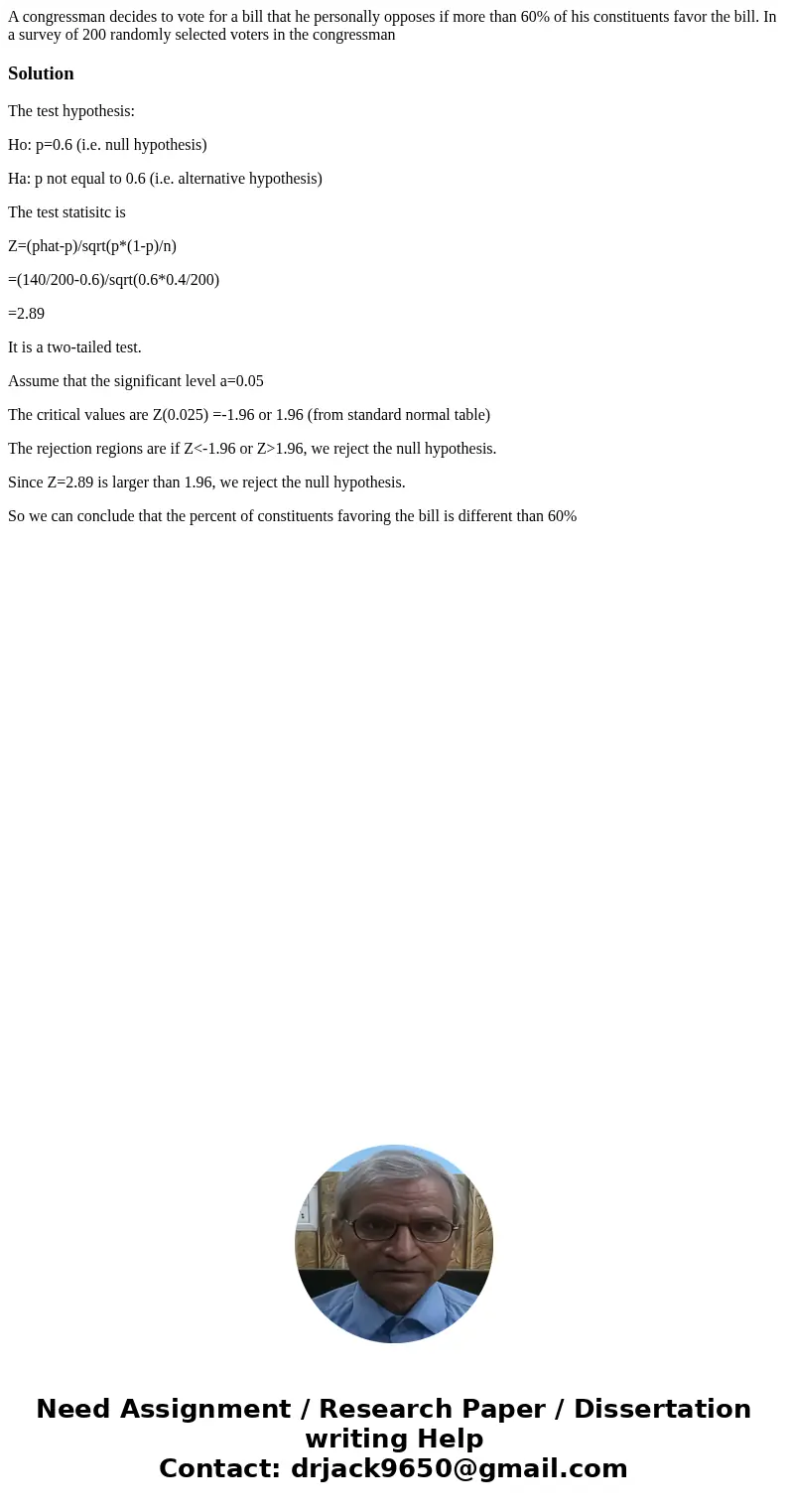A congressman decides to vote for a bill that he personally
A congressman decides to vote for a bill that he personally opposes if more than 60% of his constituents favor the bill. In a survey of 200 randomly selected voters in the congressman
Solution
The test hypothesis:
Ho: p=0.6 (i.e. null hypothesis)
Ha: p not equal to 0.6 (i.e. alternative hypothesis)
The test statisitc is
Z=(phat-p)/sqrt(p*(1-p)/n)
=(140/200-0.6)/sqrt(0.6*0.4/200)
=2.89
It is a two-tailed test.
Assume that the significant level a=0.05
The critical values are Z(0.025) =-1.96 or 1.96 (from standard normal table)
The rejection regions are if Z<-1.96 or Z>1.96, we reject the null hypothesis.
Since Z=2.89 is larger than 1.96, we reject the null hypothesis.
So we can conclude that the percent of constituents favoring the bill is different than 60%

 Homework Sourse
Homework Sourse